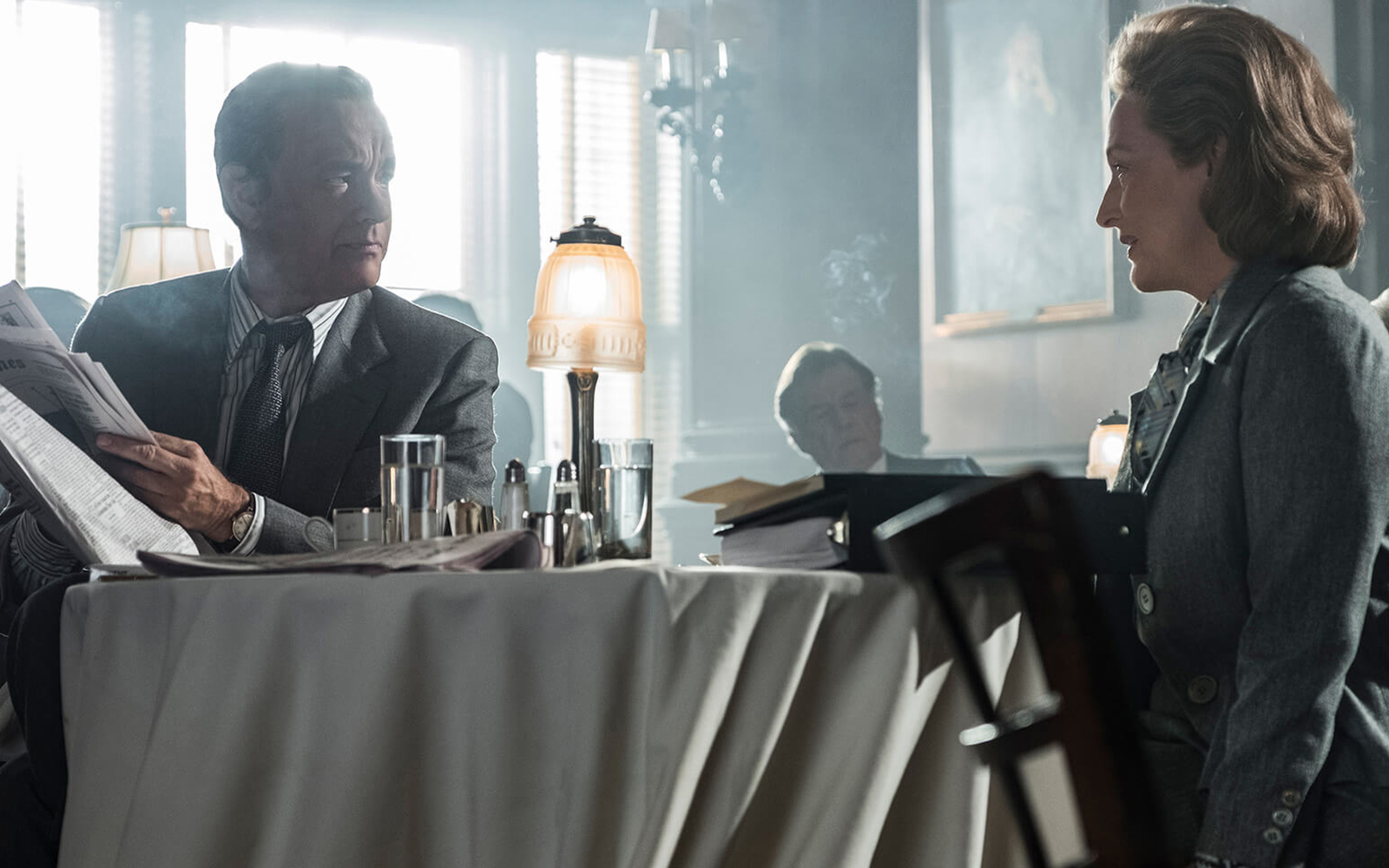
“The Post” Offers Glimpse into the Role of the ‘Fourth Estate,’ Keeping Government Accountable
On New Year’s Eve, we watched the new film: “The Post,” starring Meryl Streep and Tom Hanks. The film traces the decision by Katharine Graham (Streep) and Ben Bradlee (Hanks) to publish Vietnam-era stories based on the Pentagon papers. An injunction had just been issued against the New York Times for a similar, bold decision.
My wife and I were both of age when these events occurred, so there was no mystery about the outcome. Yet the film, which received six Golden Globe nominations, was remarkably engaging. The decision was risky and many issues were involved; The Washington Post had just had a public offering and markets could react badly if the newspaper was prosecuted for illegal and unpatriotic actions, not to mention that Graham and Bradlee could end up in jail.
For those of you who did not live through those events, the Pentagon Papers were commissioned by then-Secretary of Defense Robert McNamara, but not intended for public release and were classified top secret. They chronicled a remarkable, decades-long pattern of lies by our elected officials to justify various actions by the United States. They help one understand the protests and conflict surrounding the Vietnam War and an ongoing erosion of public trust in our government.
There is no doubt that the news media was the hero of the movie and several quotes are highly salient. To whit:
Bradlee reminds us that the best protection of the freedom of the press and the freedom to publish is to publish. While conscious of the high-speed, high-pressure journalist’s life and of the occasional error, Katharine Graham reflects on her father’s famous observation that “journalism is the first rough draft of history.”
The trailer of the film poses the conflict in the decision effectively:
Ben Bradlee: If we don’t hold them accountable, who will?
Kay Graham: We can’t hold them accountable if we don’t have a newspaper.
Ben Bradlee: What will happen if we don’t publish? We will lose! The country will lose!
There are powerful subplots. One is the ascendancy of a wonderful woman who had raised a family and supported her father and husband in running The Washington Post. At the time, it was a family business, publishing the “hometown paper.” When her husband died, she was thrust into leadership. The film, which is slated for national release on Friday, powerfully portrays the myriad ways in which the path was hard. The newsroom was almost all male, as was the board of directors of the Post and, for that matter, the government.
At one stage, as the decision to publish is being implemented, a recalcitrant advisor and board member again challenges the decision and pushes for changing the plan. Katharine has now fully embraced both the decision and her role, and scathingly tells him that The Post is not her father’s paper, it is not her husband’s paper, it is her paper and perhaps anyone who does not acknowledge her leadership does not belong on the board.
My son and I disagree about when that board member first crossed the line and first deserved her disdain. Earlier he had pushed his way onto a pivotal phone call between Katharine and Ben, in a rather unpleasant way. Worse yet, it became clear that he had gone to the investment bankers who had managed the IPO and shared with them the top-secret fact that this debate was happening at the Post. This is almost surely a violation of a board member’s duty to the company.
Bradlee’s widow, Sally Quinn, was subsequently quoted as saying: “I don’t think Watergate could have happened if Ben and Kay had not gone through the Pentagon Papers together, because in the end he was the one who really wanted to publish, and she had to decide, and all the people around her were saying ‘Don’t go, don’t go, don’t go,’ and Ben was saying, ‘We have to. We have to.’ And they did it, and he was right.”
So it should come as no surprise that as Laura, our son Jesse, and I left “The Post” on New Year’s Eve afternoon, we agreed that we would re-watch “All the President’s Men” that evening. We did. It was Redford and Hoffman as Woodward and Bernstein, and again, the fact that you know the outcome does not change the power of the film. And Sally Quinn was right, when she said “The Post” was a great “prequel” to “All The President’s Men.”

John A. Elliott
Dean, UConn School of Business
John A. Elliott is dean of the UConn School of Business, as well as the Auran J. Fox Chair in Business. John is a certified public accountant with professional experience as an auditor and consultant. His research is concentrated on the role of accounting information in financial analysis and contracts. When not attending his son’s athletic events or visiting his daughter and her family, John and his wife, Laura enjoy travel. John is also an avid fan of the UConn men’s and women’s basketball teams. View Posts